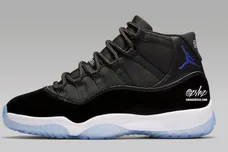This year marks landmark anniversaries for a number of essential albums. OutKast’s Southernplayalistic, The Notorious B.I.G.’s Ready to Die, and Nas’ Illmatic are just a few of the classic albums to turn 20. Eminem’s The Slim Shady LP and The Roots’ Things Fall Apart turn 15. Madvilliany and Kanye West’s The College Dropout both turn 10. Danger Mouse’s The Grey Album does not have the same prestige as those albums, but it nonetheless should be a celebrated 10th year anniversary as well.
Jay Z’s a capella version of The Black Album — the last great New York hip-hop album — inspired dozens of remix projects. There was Jaydiohead (Jay Z x Radiohead), 9th Wonder’s Black Is Back, and Kev Brown’s The Brown Album, to name a few. The Grey Album, an ingenious mesh of The Black Album and The Beatles’ famed The White Album, was unquestionably the most revered out of all of them.
It was a body of work Danger Mouse unfortunately had to end up defending because of the law. EMI, the label that holds the rights to The Beatles recordings, came after Danger Mouse and fans after retailers started selling it. The law was on EMI’s side because Danger Mouse didn’t ask for permission to use The Beatles’ tracks. You can’t sue an entire fan base, however, so the publicity gained from the case provoked them to share The Grey Album even more. Danger Mouse only defended himself by saying his work wasn’t supposed to be spread and sold at this capacity and that, “It was my intent to make an art project."
That’s what it is at the core of the controversy: an art project. The Grey Album was a mash-up that was strong enough to not be marginalized as such and instead be considered a cohesive body of work in itself. It’s one thing to inspire debate about the laws that governed an industry that was on a steady decline, and it’s another to enlighten a slew of artists and fans to more possibilities within music. The Grey Album did both.
The samples’ standards made Danger Mouse’s work even more notable. Remember: That album was Jay Z’s epic, definitive statement before he “retired.” It cemented his place in hip-hop lore. The Grey Album’s relevance isn’t judged just by how it holds up to its inspiration, however, although many can agree Danger Mouse’s rework of “Justify My Thug” is far superior to the original’s weak, DJ Quik-produced beat.
The Grey Album doesn’t bite Jay Z as much as it re-contextualizes his work. Some corresponding tracks are given new meaning because of it. The original Kanye West-produced “Encore,” a Jay Z essential, is a jazzy coda to a retiring legend. Danger Mouse flips it into a galvanizing track that borderlines an arena anthem, replacing that nostalgic sax with Savoy Truffle”’s guitar chugs instead of. “December 4th” begins The Black Album with an autobiographical account of his beginnings, and it gives the album more of a conceptual feel as it ends with “My 1st Song,” a record that has Jay Z music about his career. The warm plucks of “Mother Nature’s Son” accompanies “December 4th” as The Grey Album’s fourth track, and here it’s more of a non-essential character developing side arc.
Songs like “99 Problems” have a similar feel on both albums. The original is surrounded by this New York b-boy vibe that’s backed by Rick Rubin’s production. Rubin’s legend isn’t a factor on Danger Mouse’s cut, and neither are the regional sensibilities. Even with the chaotic “Helter Skelter” in place, “99 Problem” is still one of hip-hop’s most punk-forward tracks at its core,
Although EMI was upset, Paul McCartney — the Beatles artist who the label supposedly represents — actually liked The Grey Album. Jay Z voiced his approval as well in one interview: “I think it was a really strong album. I champion any form of creativity, and that was a genius idea — to do it.” This seems to come from an artist-to-artist perspective; Hov knew The Grey Album was more than a simple supplement.









